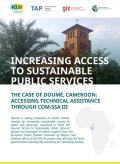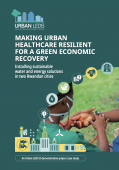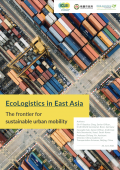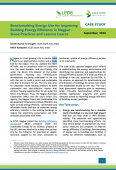
Cities globally consume up to 80% of the total global energy production and release about 75% of global CO2 emissions. Africa’s urban population is projected to triple from 400 million in 2010 to 1.26 billion in 2050, which represents nearly half of the projected rise in numbers of urban dwellers globally. Urbanisation in sub-Saharan Africa has not, for the most part, been matched with improvement in service delivery and economic growth, which hampers development opportunities. In a time when sub-Saharan Africa is experiencing the most severe impacts of climate change, local governments in Africa have great interest and incentives to take action on energy and climate issues. There is an opportunity in many African cities, as they urbanise over the next three decades, to meet existing and future needs of its economy and citizens while avoiding being locked-in to unsustainable patterns of growth.
In this context, the EUEI PDF has conducted a study on potential scenarios outlining the energy and climate responsive growth situations from now to 2050 in cities in sub-Saharan Africa. The study aims to provide an input to shape the policy dialogue around the role that African cities can and should play in the implementation of their countries’ Nationally Determined Contributions (NDCs). The research provides strategic directions to the following four stakeholder groups: African public institutions at national, regional and municipal levels, the private sector, civil society and the international donor community.




